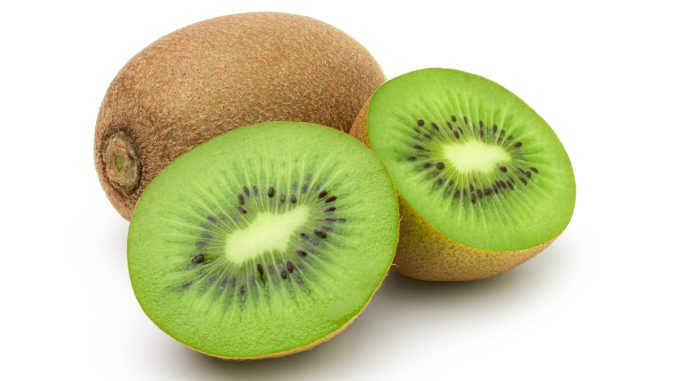
A good night’s sleep is essential for overall well-being and optimal functioning during the day. However, many people struggle with sleep-related issues, such as insomnia or poor sleep quality. While various factors can influence sleep, including lifestyle and environmental factors, your diet plays a significant role as well. Certain foods contain nutrients that can promote better sleep. In this article, we will explore five things you can eat to improve your sleep quality and enjoy a restful night.
1. Kiwi:
Kiwi is a small fruit packed with sleep-enhancing properties. It is a rich source of antioxidants, serotonin, and folate. Kiwis also contain a significant amount of vitamin C, which helps regulate cortisol levels, a hormone associated with stress. Research suggests that regularly consuming kiwi before bedtime can improve sleep onset, duration, and efficiency. The combination of antioxidants, serotonin, and other beneficial compounds in kiwi may contribute to its sleep-promoting effects.
2. Tart Cherries:
Tart cherries, particularly Montmorency cherries, are a natural source of melatonin, a hormone that regulates sleep-wake cycles. Studies have shown that drinking tart cherry juice or consuming whole cherries can increase melatonin levels in the body and improve sleep quality. Melatonin helps to regulate the sleep-wake cycle and promote a more restful sleep. Consider incorporating tart cherries or their juice into your evening routine for a sleep-friendly boost.
3. Nuts and Seeds:
Certain nuts and seeds, such as almonds, walnuts, flaxseeds, and chia seeds, are rich in magnesium, omega-3 fatty acids, and tryptophan. Magnesium helps regulate neurotransmitters involved in sleep, while omega-3 fatty acids have anti-inflammatory properties that may contribute to better sleep quality. Tryptophan is an amino acid precursor to serotonin and melatonin, promoting relaxation and sleep. Including a handful of these nuts and seeds in your evening snack can provide a sleep-supportive nutrient boost.
4. Herbal Teas:
Herbal teas, such as chamomile, valerian root, and lavender, have been used for centuries as natural sleep aids. Chamomile tea is known for its calming properties, which can help reduce anxiety and promote relaxation. Valerian root has been traditionally used as a sleep aid, believed to increase levels of gamma-aminobutyric acid (GABA) in the brain, a neurotransmitter that induces relaxation. Lavender tea may also have a soothing effect and promote better sleep. Sipping on a warm cup of herbal tea before bedtime can create a relaxing bedtime ritual and improve sleep quality.
5. Complex Carbohydrates:
Incorporating complex carbohydrates into your evening meals can support better sleep. Foods such as whole grains (oats, brown rice), quinoa, sweet potatoes, and legumes have a low glycemic index and release glucose into the bloodstream gradually. This slow release of energy helps stabilize blood sugar levels and promotes a more balanced and sustained sleep. Including complex carbohydrates in your dinner can help regulate sleep-promoting hormones and prevent blood sugar fluctuations that can disrupt sleep.
In addition to these specific foods, it’s important to maintain a balanced diet overall to support healthy sleep patterns. Avoid consuming heavy or spicy meals close to bedtime, as they can cause indigestion or discomfort that may interfere with sleep. Limit your intake of caffeine and alcohol, as they can disrupt your sleep-wake cycle and contribute to restless sleep.
Remember that individual responses to foods may vary, and it’s important to listen to your body. If you have any specific dietary concerns or existing health conditions, it’s recommended to consult with a healthcare professional before making significant changes to your diet.
Conclusion
Incorporating sleep-friendly foods into your diet can be an effective strategy for improving sleep quality. Kiwi, tart cherries, nuts and seeds, herbal teas, and complex carbohydrates are all excellent choices to promote relaxation, enhance melatonin production, and stabilize blood sugar levels. By making these foods a regular part of your evening routine, you can create a sleep-friendly environment and support a restful night’s sleep. Remember to combine a balanced diet with other healthy sleep habits, such as maintaining a consistent sleep schedule and creating a relaxing bedtime routine, to maximize the benefits of these sleep-promoting foods.
Share this:
- Click to share on Facebook (Opens in new window)
- Click to share on Twitter (Opens in new window)
- Click to share on WhatsApp (Opens in new window)
- Click to share on Reddit (Opens in new window)
- Click to share on Telegram (Opens in new window)
- Click to share on Pinterest (Opens in new window)
- Click to share on LinkedIn (Opens in new window)